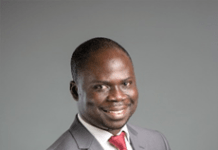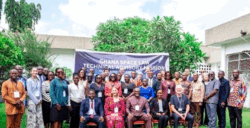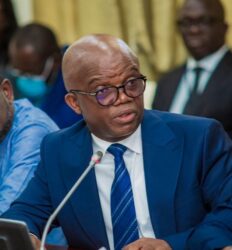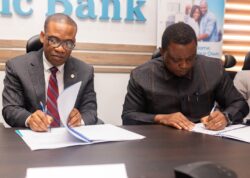By Enoch AKUFFU-DJOBI (PhD)
Ghana, one of Africa’s most stable democracies, operates under a four-year presidential term system.
Since the beginning of the Fourth Republic in 1992, Ghanaians have gone to the polls every four years to elect a president and members of parliament.
As Ghana marks over three decades of uninterrupted democratic governance, one question has persisted in public discourse: is the country’s four-year presidential term a boon for accountability or a barrier to meaningful development?
While some herald it as a triumph of democracy, evidence suggests that Ghana’s short political cycle is increasingly undermining national progress.
That is to say, while this electoral system has strengthened democratic participation, it also raises important questions about governance, development, and accountability.
As usual, this article seeks to educate readers on the advantages and disadvantages of Ghana’s four-year term, and call on the legislature for reforms to change Ghana’s electoral timelines in the next horizon.
The Structure of the Four-Year Term
Under Ghana’s 1992 Constitution, the president is elected for a four-year term and may seek re-election for one additional term.
Statistically, this means a maximum of eight years in office for any individual or government. The system is designed to encourage democratic turnover and avoid the long-term concentration of power in one individual or political party.
Presidential and parliamentary elections are typically held in December, with transitions taking place in January. This has become a regular feature of Ghana’s democratic calendar, with peaceful transfers of power praised across Africa and beyond.
Benefits of the Four-Year Term
Democratic Accountability
A major strength of the four-year term is that it allows citizens to regularly assess the performance of their leaders.
Poor-performing administrations can be voted out, as was the case in the 2024 elections when his excellency, John Dramani Mahama returned to office after defeating Vice President Mahamudu Bawumia.
The election outcome reflected public dissatisfaction with economic challenges such as inflation, youth unemployment, and the cedi’s depreciation, and above all, the skyrocketing of Ghana’s public debt.
Protection Against Dictatorship
Frequent elections limit the risk of authoritarianism. Ghana’s experience shows that regular voting can ensure leadership renewal, promote political diversity, and prevent the entrenchment of power.
Citizen Engagement
Shorter terms keep citizens politically active and informed. They know their votes carry weight and that they have the power to demand results in the near term.
Challenges of the Four-Year Term
Short-Term Policy Planning
A major drawback of the four-year cycle is that it often encourages short-term thinking. Governments, knowing they must show results quickly, may prioritize projects that are visible and politically advantageous over those that are strategic and long-term.
For example, promises made during the 2024 campaign — such as renegotiating Ghana’s $3 billion IMF deal — appeal to voters but may not guarantee sustainable economic growth.
Policy Discontinuity
A common concern is that new governments often discontinue or reverse the policies and projects of their predecessors, even when those projects are beneficial. This has led to wastage of public resources and slowed national progress.
Limited Time for Implementation
Realistically, a four-year term gives a president only about two years of effective governance. The first year is spent settling into office, and the final year is consumed by preparations for the next election. This compressed timeline leaves little room for long-term development initiatives.
The Case Against the Four-Year Term
Let us be blunt — four years is simply not enough to govern effectively, especially in a developing country like Ghana. The political reality is that the first year is often spent undoing the previous government’s policies, and the final year is lost to campaigning.
That leaves barely two years for serious governance. This structural limitation encourages politicians to chase quick wins rather than bold, long-term reforms.
Take the 2024 general elections, for instance. Former President John Dramani Mahama’s campaign focused largely on renegotiating the $3 billion IMF bailout — a move framed as pro-poor and anti-austerity.
While such promises resonate with voters feeling economic pain, they also reflect a deeper issue: presidents are incentivized to prioritize immediate electoral gains over fiscal sustainability (Citi Newsroom, 2024).
Moreover, policy discontinuity remains a crippling problem. Each administration enters office with a mandate to “correct the mistakes” of the last, leading to frequent abandonment of projects and wasted public funds. Roads are left unfinished, schools forgotten, and initiatives rebranded instead of completed. This cycle is not just inefficient — it’s unsustainable.
A Counterpoint: Democratic Accountability
Supporters of the four-year term argue that it is the bedrock of democratic accountability. Citizens are granted regular opportunities to evaluate leaders and demand better. This system also prevents the over-concentration of power — a legitimate concern in many African nations with authoritarian pasts.
Indeed, the peaceful transition of power in the 2024 elections, despite fierce competition between Mahama and Vice President Bawumia, demonstrates that Ghana’s democracy is strong.
The Electoral Commission’s improved transparency through biometric verification and digital result transmission was widely praised by both ECOWAS and domestic observers (Citi Newsroom, 2024).
However, my innermost believe is that democracy should not only be about voting. It must also be about delivering sustainable governance and development, and that’s where the four-year system falls short.
The Way Forward
Ghana must begin to have a serious national conversation about reforming its political structure. Extending the presidential term to five or six years (as it is for other countries) — without immediate re-election — could strike a balance between democratic accountability and developmental focus.
Such a system would give presidents the time to implement meaningful policies without being distracted by constant politicking. Moreover, institutional reforms to limit post-election policy reversals and ensure project continuity could help make any term, regardless of length, more effective.
Conclusion
In a nation hungry for economic transformation and sustainable growth, the four-year presidential term is proving to be more of a stumbling block than a stepping stone.
While democracy must be protected at all costs, it should not come at the expense of national development. It is time for Ghana to rethink its political timelines — not to weaken democracy, but to strengthen governance and development.
Enoch is a Chartered Accountant / Certified Banker with a deep passion for accounting, banking, and governance. His expertise spans both education and practice reflecting a commitment to research and knowledge sharing. He can be reached via [email protected]). Contact: +233244201383.










